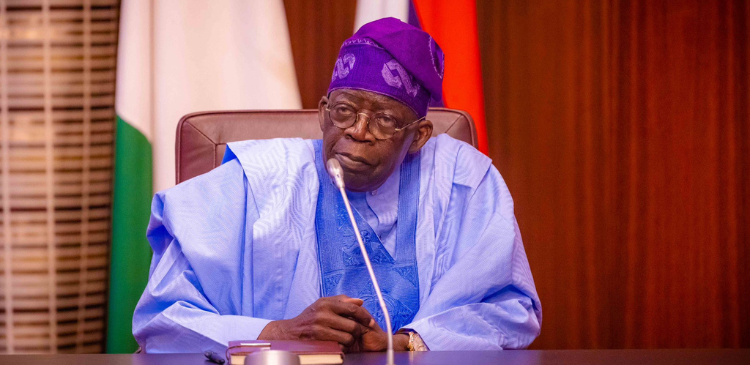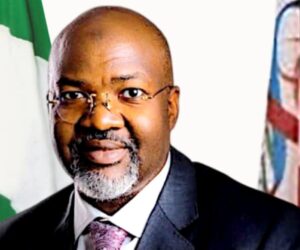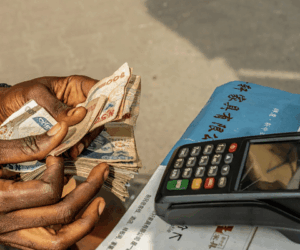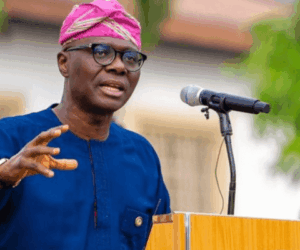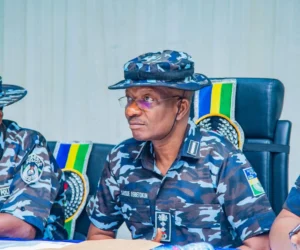…says 250,000 ex-Boko Haram terrorists surrendered
…frowns at resurgence of military coup in Africa
President Bola Tinubu has tasked the European Union (EU) and other global leaders to work with African partners in creating peace and security initiatives anchored on African-led frameworks, as a pathway to achieving sustainable stability across the continent.
This comes as President Tinubu also frowned at the resurgence of Unconstitutional Changes of Government (UCGs) in Africa, noting that it undermines the democratic foundations upon which the African Union (AU) was built.
He said these disruptions cannot be separated from exogenous pressures that distort political balances and strain already fragile systems.
Read also: Tinubu calls for global partnership to defeat terrorism
The Nigerian leader called on the European Union to work closely with African partners in addressing the structural drivers of these crises.
Tinubu, who was represented by Vice President Kashim Shettima, made the call on Monday during the first plenary session on Peace, Security, Governance and Multilateralism at the 7th African Union–European Union Summit in Luanda, Angola.
BusinessDay gathered that the Nigerian government also used the platform to intensify its bid to secure permanent seats with veto-wielding authority for Africa on the United Nations (UN) Security Council, insisting that a comprehensive reform of the global governance system is long overdue.
While speaking on his administration’s efforts to tackle insecurity in Nigeria, the President disclosed that over 250,000 Boko Haram-affiliated individuals had surrendered in early 2025 following the government’s kinetic and non-kinetic measures.
Tinubu stressed that the challenges of armed conflict, illicit weapons, climate pressures, irregular migration and political instability across Africa now demand stronger cooperation.
He noted that addressing these challenges requires renewed AU–EU focus on preventive diplomacy, inclusive governance, and long-term investment in people and infrastructure.
“It is time for Africa to occupy permanent seats on the UN Security Council, with all attendant privileges, including the veto. Genuine text-based negotiations under the Intergovernmental Negotiations (IGN) framework must now commence. It is our hope that EU Member States will support Africa’s long-standing and legitimate call for reform of the United Nations,” he stated.
The President acknowledged that the EU has remained one of the AU’s most reliable partners since the creation of the African Peace and Security Architecture in 2002, the President recalled that Nigeria’s experience has shown that regional instability, if left unchecked, fuels terrorism, insurgency, banditry, and transnational organised crime.
He declared that his administration has adopted a combination of kinetic and non-kinetic measures, including the Multinational Joint Task Force (MNJTF) in the Lake Chad Basin, which, according to him, remains an effective model of African-led cooperative security.
According to him, a major component of Nigeria’s strategy continues to yield positive security outcomes, adding: “As of early 2025, over 120,000 Boko Haram-affiliated individuals, including family members, have surrendered.”
“Nigeria’s commitment to regional stability is further reinforced by the recent Sea-Lift Agreement between the Nigerian Navy and the AU Standby Force (ASF), enhancing Africa’s rapid deployment capabilities for peace operations and humanitarian support,” he added.
Speaking further on the current security situation, the President called for an EU initiative anchored on African-led frameworks and regional ownership to drive positive outcomes.
He said, “However, recent experience has shown that externally driven initiatives, however well-intentioned, cannot succeed at pace without strong regional ownership and a grounded understanding of local dynamics. Peace and security initiatives must therefore be co-created with African partners and anchored in African-led frameworks.”
On irregular migration, the President advised that the issue must be addressed in a manner that acknowledges its deep economic and demographic drivers, as criminalising mobility has only compounded insecurity across the continent and beyond.
Instead, he proposed structured labour pathways, such as Nigeria’s Technical Aid Corps for cooperation within the Global South and Business Process Outsourcing (BPO), where Nigeria’s highly skilled youthful population can contribute to Europe’s labour needs without resorting to irregular migration.
“Seasonal mobility has underpinned West African civilisation for centuries — the ECOWAS Protocol on Free Movement simply acknowledges this reality. Our joint task is to convert mobility into safe, orderly, and productive pathways that benefit both continents,” he said.
He disclosed that Nigeria and its neighbours have initiated the Regional Partnership for Democracy (RPD), an initiative aimed at strengthening constitutional order, countering extremist narratives, combating disinformation, and supporting governance reforms across West Africa. “It reflects our conviction that security and democratic stability must be pursued simultaneously.”
Read also: FG confirms US partnership to combat terrorism, banditry
“The conflict in Sudan has resulted in more than 40,000 deaths and displaced over 12 million people. We welcome the G7’s call for renewed diplomacy; however, external actors fuelling the conflict must be held accountable. Similarly, rising tensions in South Sudan require continued engagement to ensure the full implementation of the Revitalised Peace Agreement ahead of the 2026 elections,” he added.
The President further stressed that Nigeria firmly believes that peace and security initiatives in Africa must be African-led and implemented through legitimate platforms.
“We stand resolutely against the use of private military and security companies (PMCs) in African conflicts, as their presence often complicates resolution efforts and undermines state sovereignty.
“As the world witnesses a diminishing commitment to multilateralism, the EU remains a platform for partnership and collaboration on a continent-to-continent basis, anchored on mutual respect and shared aspirations,” he added.
He said “Nigeria remains firmly committed to advancing peace, security, and democratic governance across the continent and is more prepared than ever to work with the European Union to build a more stable, just, and prosperous world.”

